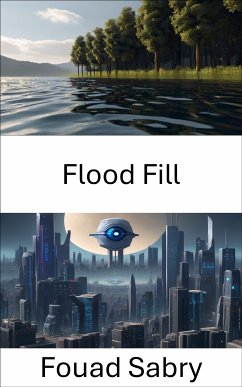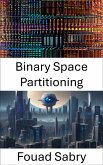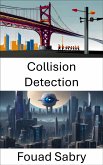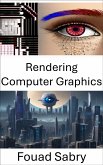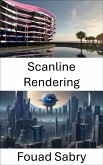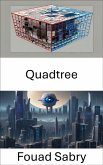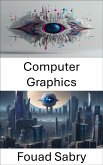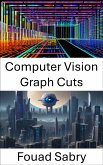What is Flood Fill
Flood fill, also called seed fill, is a flooding algorithm that determines and alters the area connected to a given node in a multi-dimensional array with some matching attribute. It is used in the "bucket" fill tool of paint programs to fill connected, similarly-colored areas with a different color, and in games such as Go and Minesweeper for determining which pieces are cleared. A variant called boundary fill uses the same algorithms but is defined as the area connected to a given node that does not have a particular attribute.
How you will benefit
(I) Insights, and validations about the following topics:
Chapter 1: Flood fill
Chapter 2: Scanline rendering
Chapter 3: Depth-first search
Chapter 4: Quadtree
Chapter 5: Graph traversal
Chapter 6: Connected-component labeling
Chapter 7: Watershed (image processing)
Chapter 8: Maze-solving algorithm
Chapter 9: Ray casting
Chapter 10: Box blur
(II) Answering the public top questions about flood fill.
(III) Real world examples for the usage of flood fill in many fields.
Who this book is for
Professionals, undergraduate and graduate students, enthusiasts, hobbyists, and those who want to go beyond basic knowledge or information for any kind of Flood Fill.
Flood fill, also called seed fill, is a flooding algorithm that determines and alters the area connected to a given node in a multi-dimensional array with some matching attribute. It is used in the "bucket" fill tool of paint programs to fill connected, similarly-colored areas with a different color, and in games such as Go and Minesweeper for determining which pieces are cleared. A variant called boundary fill uses the same algorithms but is defined as the area connected to a given node that does not have a particular attribute.
How you will benefit
(I) Insights, and validations about the following topics:
Chapter 1: Flood fill
Chapter 2: Scanline rendering
Chapter 3: Depth-first search
Chapter 4: Quadtree
Chapter 5: Graph traversal
Chapter 6: Connected-component labeling
Chapter 7: Watershed (image processing)
Chapter 8: Maze-solving algorithm
Chapter 9: Ray casting
Chapter 10: Box blur
(II) Answering the public top questions about flood fill.
(III) Real world examples for the usage of flood fill in many fields.
Who this book is for
Professionals, undergraduate and graduate students, enthusiasts, hobbyists, and those who want to go beyond basic knowledge or information for any kind of Flood Fill.
Dieser Download kann aus rechtlichen Gründen nur mit Rechnungsadresse in A, B, BG, CY, CZ, D, DK, EW, E, FIN, F, GR, H, IRL, I, LT, L, LR, M, NL, PL, P, R, S, SLO, SK ausgeliefert werden.

